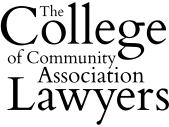Pros and Cons of Choosing an HOA for a Housing Development
Posted on January 22, 2026
What HOAs Need to Know About Grounds Maintenance Services
Posted on December 27, 2025
Energy Upgrades vs. Owner Objections in Illinois Condos
Posted on December 12, 2025
Can Illinois Condo Boards Be Sued for Underfunded Reserves?
Posted on November 07, 2025
Smart Tech Guidelines That Illinois HOAs Can Enforce
Posted on September 25, 2025
Community Gardens, Chickens, and Bees in HOA Communities
Posted on August 31, 2025
Who Is Responsible for Repairs in an Illinois Condominium?
Posted on August 14, 2025
How Are Condominium Delinquencies Handled After 90 Days?
Posted on July 11, 2025
Ensuring HOA and Condo Association Compliance with ADA Laws
Posted on June 29, 2025
Breaking Down Illinois Homeowners Association Documents
Posted on May 23, 2025
What Illinois COAs Need to Know About Meeting Requirements
Posted on April 24, 2025
Homeowner Association Rule Revisions in These Turbulent Times
Posted on March 23, 2025
Top Reasons Homeowners Associations Need an Attorney
Posted on March 05, 2025
Successful Turnover from Developer to Condominium Association
Posted on February 10, 2025
Homeowners Associations and Reasonable Accommodations
Posted on January 09, 2025
Common Types of Business Contract Disputes and Potential Resolutions
Posted on November 13, 2024
Why Have Condo Association Insurance Costs Doubled Since 2022?
Posted on October 10, 2024
Significant Condominium and Homeowner Association Laws
Posted on September 24, 2024
Differences Between Condominium and Homeowner Associations
Posted on September 09, 2024
How Illinois Condominium Associations May Be Affected by New Accessible Parking Requirements
Posted on August 22, 2024
Three Reasons Why Homeowner Associations Exist
Posted on August 07, 2024
Understanding the Surge in Condominium Insurance Premiums
Posted on July 26, 2024
CAI Sues to Exempt Community Associations from Corporate Transparency Act
Posted on July 10, 2024
Exploring the Role of Lawyers for Condominium and Homeowner Associations
Posted on June 25, 2024
In this Climate of Non-Compliance, What is an Association to Do?
Posted on May 24, 2024
Installation of License Plate Readers: An Invasion of Privacy? Yes or No?
Posted on April 24, 2024
Proxies or Secret Ballots: Which Method Should a Board Association Use in Illinois?
Posted on April 09, 2024
Non-Compliant Owners: Understanding Whether to Impose Fees or Fines in Illinois
Posted on March 29, 2024
Seeking Legal Assistance with Homeowner Association Law
Posted on January 27, 2024
Season's Greetings
Posted on December 20, 2023
What Issues Do Condominium Law Attorneys Handle in Illinois?
Posted on October 05, 2023
What to Know About the New Corporate Transparency Act
Posted on September 25, 2023
What Can I Do About Marijuana Smoke in a Condo?
Posted on September 08, 2023
What Should I Know Before Selling My Condo in Illinois?
Posted on August 28, 2023
What a Condo Association Should Know About Rule Changes
Posted on August 09, 2023
What You Need to Know About Dogs Restrictions and Condo Associations
Posted on July 13, 2023
Can Condo Associations in Illinois Prohibit the Use of Marijuana?
Posted on June 22, 2023
Understanding Fannie Mae and Freddie Mac Forms for Condo Associations
Posted on June 12, 2023
How Will Chicago’s Decarbonization Strategy Affect Condominiums?
Posted on May 10, 2023
 Polish,
Polish,  Ukrainian,
Ukrainian,  Russian,
Russian,  Hindi,
Hindi,  Spanish,
Spanish,  French and
French and  Greek.
Greek.















